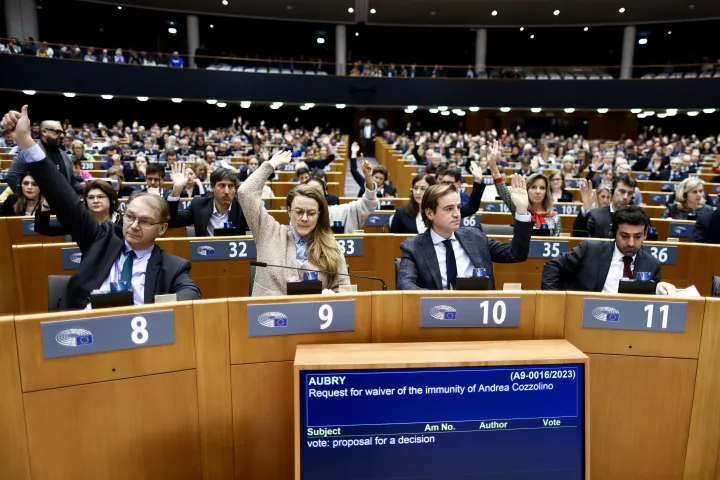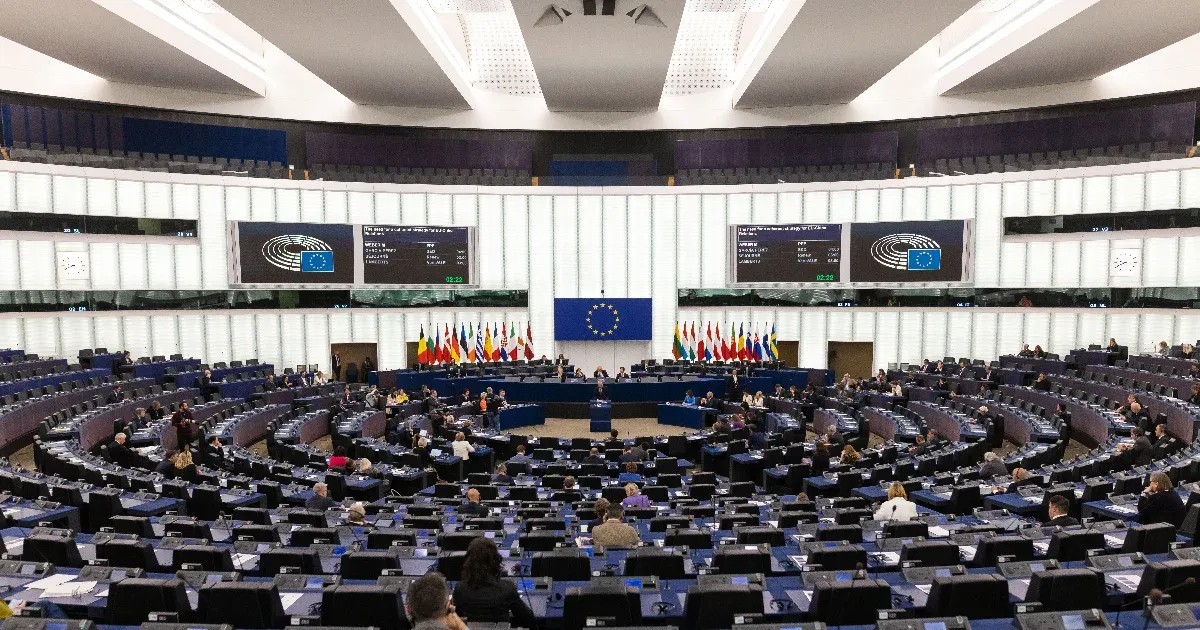There is less than a year left before European Union voters elect the next members of the European Parliament. The composition of the European Union’s joint decision-making body alongside the Council representing the Member States will be determined from 6 to 9 June 2024 in the Member States. The different factions in the European Parliament are made up of the representatives who enter the European Parliament.
Right: Center to bottom, Radicals to top
The European People’s Party (EPP) is now the largest parliamentary group. At the same time, the share of the former Fidesz party and the current faction of the KDP in parliamentary seats is decreasing, according to the latest projections published by Elected Europe on Thursday. issued. As Tobias Gerhard Schmenke, founder and CEO of the organization that summarizes and interprets votes and polls, told Telex, the center-right European People’s Party now has 25%, but that percentage will drop to 23%.
“The picture is different with the far right, because its power is increasing.”
highlighted. If we group them from the more conservative and Eurosceptic Conservatives and European Reformers to the far-right parties that have only one or two MEPs and no European party group can absorb, their share rises from 21% to 27%. Based on the predictions of European teams.
Can the right-wing parties advance and be able to form a majority? “That’s a good question, because if you just add up the numbers of the center-right and the far-right, they currently get 46 percent, and based on our projections, they get about 50 percent.” Among the right-wing groups that also have more radical parties in their ranks, the more moderate European Council party will get 12% of the seats instead of 9%.
“Elections are not opinion polls, and the numbers can change,” so you could get more than 50 percent, but “between the center-right and the far-right there are differences on many political issues.” Some of them are far-right parties and extremist neo-Nazis, and Tobias Gerhard Schmenke does not expect the People’s Party to cooperate with them, so
“In my opinion, the assumption that the EPP will somehow form a right-wing coalition in Parliament is unrealistic.”
This allows them to contact parties of the left or the right “whenever there are certain policy proposals on the table and see who they can work with, who offers them a better deal”.
Europe elections summary of party preferences according to August 2023 data – Source: Europe Elects
“We have to keep that in mind
There are no coalitions in the traditional sense in the European Parliament.
The groups work together depending on the political areas. While there is general agreement that the Greens, Liberals, Socialists and the center-right are currently working together, there is no formal alliance.
Currently, the two largest groups have approximately 45% of the vote, but due to the weakness of the People’s Party, this percentage may drop to 42%. This trend also marked the 2019 elections, in which the People’s Party and the left-wing Progressive Alliance of Socialists and Democrats lost their previous absolute majority.
The People’s Party can play both sides
Despite the expected losses, the EPP could take advantage of the new situation and “play one way or the other the two sides against each other depending on the politics involved”. Sometimes they can work with liberals, socialists and greens on certain things. In other cases, they can report to the ECR and wait to see what they can recommend.
The Eurosceptic group is also on the radar of the largest Hungarian government party.
Fidesz representatives – like Tamas Deutsch in July – they said, that they wish to join the ECR. I also spoke with representatives of the ECR, who also stated that they would welcome Fidesz to join the group, but this has not happened so far.
Perhaps this is a strategy in the sense that some members of the European Council do not want to be associated with Fidesz in the campaign for the European Parliament, but there may also be real obstacles to cooperation that we know nothing about at this stage.” The analyst hinted at possible explanations for some. Fidesz is again without friends after the elections, but it will be painful because it will limit its influence in the institutions of the European Union. Besides, being an outcast looks bad.”
Qatargate did not shake the socialists
Several members of the second largest group, the Socialists, who have since been exposed were implicated in the Qatargate corruption scandal (we wrote about it in detail here), which came to light last year. However, this does not seem to have affected its projected share of states. “The numbers are quite stable,” said Tobias Gerhard Schmenke. Based on their latest summary, the group could increase its existing 20 percent stake by one additional amount.
“Election campaigns for the European Parliament continue to be largely dominated by national debates.
So we can see that in some countries, like Greece, where Qatarjet has been more prominent in the media, this could affect the PST numbers, but it has no impact across the continent.

The vote on the request to suspend the immunity of Mark Tararabella of Belgium and Andrea Cozzolino of Italy as part of the investigation into alleged bribes by Qatar and Morocco takes place at the European Parliament session in Brussels on February 2, 2023, after the unanimous endorsement on January 31 of those implicated in corruption scandals suspending the immunity of an MP – Photo : Kenzo Tripuillard/AFP
For the Greens, a lot depends on the Germans
Figures released by European Electors show that other left-wing groups, such as the Liberals and especially the Green Party, could lose seats (from 14% to 13% and from 10% to 8, respectively). “I don’t think their situation will change dramatically,” said Chminke. “The Liberals in particular wield a great deal of influence in the European Council,” because they add many members to the body of EU heads of state and government. “We have to take into account that nothing happens in the European Union without the approval of the European Council.”
“The Greens usually campaign very well in European elections, so they can do better in the polls than in the opinion polls.” However, “it would be difficult to do it again in Germany” because the party is usually in opposition but is now in government. (Elections Europe data It shows that the German Green Party took second place in Germany in the summer of 2022 with 22-23%, but currently it has slipped to fourth place with 14%.) The largest member state is important for the Green Party, because almost a third of their representative votes actually came from Germany .
Attendance appears to have stabilized
An important thing that affects the final result is the number of voters. Since the first direct vote in 1979, there have been fewer people participating in elections to the European Parliament, but this situation has stabilized somewhat recently.
“I don’t think there is a minimum that can be achieved.
Participation may drop further.”
– warned Tobias Gerhard Schmienke. Perhaps one of the reasons why voter turnout has not fallen is the emergence of many new right-wing parties. We had just finished with the immigration crisis and the eurozone, and that, together with the new parties, succeeded in mobilizing voters who had not voted before. Ironically, the rise of new right-wing forces may have contributed somewhat to the increase in turnout in the recent elections. And with the continued advance to the right, “we may see it again.”
Participation will depend on the extent to which voters feel their participation matters on important issues. The nature of these key issues varies from country to country, but European Barometer surveys can provide answers. Last I printed them according to

As part of the paid collaboration for this article, it is Alrite speech recognition (speech-to-text) solution. We used it.












































